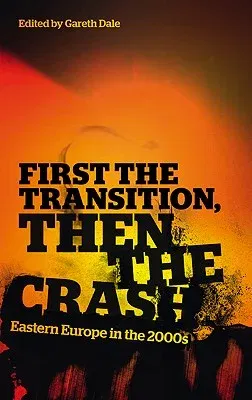First the Transition, then the Crash: Eastern Europe in the 2000sPaperback, 12 September 2011

Qty
1
Turbo
Ships in 2 - 3 days
In Stock
Free Delivery
Cash on Delivery
15 Days
Free Returns
Secure Checkout
Print Length
288 pages
Language
English
Publisher
Pluto Press (UK)
Date Published
12 Sep 2011
ISBN-10
0745331157
ISBN-13
9780745331157
Description
Product Details
Book Format:
Paperback
Country of Origin:
US
Date Published:
12 September 2011
Dimensions:
21.34 x
13.46 x
1.52 cm
ISBN-10:
0745331157
ISBN-13:
9780745331157
Language:
English
Location:
London, England
Pages:
288
Publisher:
Weight:
317.51 gm

